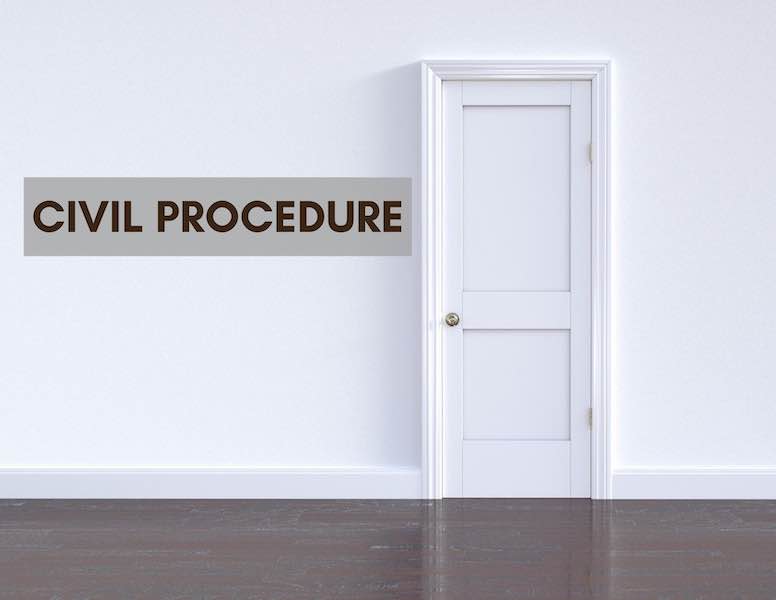No One Should Be The Judge in His Own Cause (Situations Where a Judge ought to Recuse Himself/Herself)
by Nicholas Navaron ~ 3 September 2020

Contributed by

Nicholas Navaron (Associate)
Tel: 603-6201 5678 / Fax: 603-6203 5678
Email: nnc@thomasphilip.com.my
Website: www.thomasphilip.com.my
Cast 10 stones in a public park, you will hit a lawyer.
Cast 10 stones in the Court, you will hit 5 friends.
Let’s be honest – Malaysia is not a geographic giant! Sure, she is bigger than the Vatican and Brunei… collectively. But, the professional community is small. This also means that, especially in the justice system, conflict of interest may arise.
Additionally, judicial officers are not mere sentient beings whose only purpose in life is to uphold justice. They are human beings. And just like any other human beings, replete with social traits and quirks.
So, when do you draw the line?
When do you say ‘no’ when your opponent is a friend/relative of the judicial officer presiding over your case?
When do you say ‘no’ when the judicial officer appears to be averse to you (for some personal/extra-judicious reasons)?
Indeed, “[t]he law will not suppose a possibility of bias in a Judge, who is already sworn to administer impartial justice, and whose authority greatly depends upon that presumption and idea…” (see the decision of Gopal Sri Ram JCA (as His Lordship then was) at paragraphs 911b and 911c in Hock Hua Bank (Sabah) Bhd v Yong Liuk Thin & Ors [1995] 2 MLJ 213 (“Hock Hua Bank case”)).
Further, the Judicial Officers’ Code of Ethics 2019 prescribes various standards Judges ought to subscribe in Court, including censuring:
- “…any relationship to influence his judicial conduct or judgment…”
- “…lend the prestige of his judicial office to advance his or others’ private interest…”; and
- “…convey or permit others to convey the impression to any person that they are in a special position to influence him…”
That is why, mounting an application to recuse a Judge is, more often than not, frowned upon. In fact, it goes beyond being frowned upon. As observed by Lord Hewart CJ in R. v. New Statesman, ex parte Director of Public Prosecutions [1928] 44 TLR 301, imputation of unfairness and lack of impartiality to a Judge in the discharge of his judicial duties is contemptuous.
So, when does a conflict (personal or otherwise) corrupt judicious acumen?
Automatic disqualification
When the Court is presented with a recusal application, the Court will generally determine first whether the Judge has a pecuniary or direct interest in the said matter. If there is, the Judge is automatically disqualified from presiding over the same.
For instance, in R v Bow Street Metropolitan Stipendiary Magistrate and others, ex parte Pinochet Ugarte (No 2) [1999] 1 All ER 577, Lord Hoffmann was disqualified from presiding over the appeal as His Lordship was, at the material times, the director of a charity closely allied to Amnesty International (a party to the said appeal) and sharing the latter’s objects.
‘The real danger of bias’ test
If the Court cannot find any pecuniary or direct interest on the part of the Judge in the said matter, the Court will then resort to the tests fashioned through judicial decisions – ‘the real danger of bias’ test, ‘the reasonable suspicion’ test and ‘the real likelihood of bias’ test (see paragraph 488A, Locabail (U.K.) Ltd. V Bayfield Properties Ltd (CA) [2000] QB 451 (“Locabail case”)).
In Malaysia, it is trite that the applicable test is ‘the real danger of bias’ test (see the decision of Edgar Joseph Jr. FCJ (as His Lordship then was) at paragraphs 69E to 70B in Majlis Perbandaran Pulau Pinang v Syarikat Bekerjasama-sama Serbaguna Sungai Gelugor dengan Tanggungan [1999] 3 MLJ 1). In this regard, Lord Goff at paragraph 670F in R v Gough [1993] AC 646 explained:
“Accordingly, having ascertained the relevant circumstances, the court should ask itself whether, having regard to those circumstances, there was a real danger of bias on the part of the relevant member of the tribunal in question, in the sense that he might unfairly regard '(or have unfairly regarded) with favour, or disfavour, the case of a party to the issue under consideration by him…”
Although the English Court of Appeal, at paragraph 480B, in the Locabail case, held that “[i]t would be dangerous and futile to attempt to define or list the factors which may or may not give rise to a real danger of bias…”, the English Court of Appeal did list out certain situations where “…a real danger of bias might arise…”, as follows (see paragraphs 480D to 480F, the Locabail case):
- “…there were personal friendship or animosity between the judge and any member of the public involved in the case…”;
- “…if the judge were closely acquainted with any member of the public involved in the case, particularly if the credibility of that individual could be significant in the decision of the case…”;
- “…if, in a case where the credibility of any individual were an issue to be decided by the judge, he had in a previous case rejected the evidence of that person in such outspoken terms as to throw doubt on his ability to approach such person’s evidence with an open mind on any later occasion…”;
- “…if on any question at issue in the proceedings before him the judge had expressed views, particularly in the course of the hearing, in such extreme and unbalanced terms as to throw doubt on his ability to try the issue with an objective mind…”; and
- “…if, for any other reason, there were real ground for doubting the ability of the judge to ignore extraneous considerations, prejudices and predilections and bring an objective judgment to bear on the issues before him…”
The situation where a ‘real danger of bias’ is said to exist also extends to a situation where the Judge no longer holds the position/interest in question when the matter is fixed before His Lordship/Her Ladyship.
For example, the case of Dato’ Seri IR Hj Mohammad Nizar Jamaluddin v Dato’ Dr. Zambry Abd Kadir [2009] 1 LNS 1827 (HC) concerned an application by a member of a political party to challenge the appointment of a chief minister. Mohamad Ariff Md Yusof JC (as His Lordship then was), who was previously the adviser and counsel to the said political party, held:
“Both sides have their convincing arguments. Both agree that the test to be applied is the "real danger of bias" test, to be decided objectively. How that test is to be decided objectively is a matter of some pragmatic difficulty. The cases do not point in a clear and consistent direction. The pragmatic problem is this: how is a judge in my position to decide objectively that there is a real danger or possibility of bias if I am to proceed to hear the case?
…
I am of the view that any decision to recuse in the present circumstances is best rooted in first principles of justice. I had highlighted this point on the first mention date. The primary concern must be that justice must manifestly be seen to be done. Not just be done but, I stress, manifestly so. The objective fact is my sitting has courted controversy, whether rightly or wrongly. That counsel's conclusions can be so opposed, although applying the same principles, is an added testimony to this objective fact. This is where the valuable commentary in the authority cited by learned senior counsel for the applicant becomes highly relevant as the proper practice to be followed: "However, where the interest is more than minimal or when his association with a party, witness or counsel might give rise to the appearance of impropriety, of unfairness or bias, he will disqualify himself and not leave the matter dependent upon whether or not the parties will raise objections.": "Judges on Trial"(supra)…”
Conclusion
‘The real danger of bias’ test is, arguably, a difficult test as a mere suspicion is not enough to recuse a Judge from presiding over a matter. But, this understandable given the adverse effects a recusal application may have on the credibility and integrity of the Judiciary. After all, Lord Hewart CJ (as His Lordship then was) in R v Sussex Justices, ex parte McCarthy [1924] 1 KB 256, held that "[n]ot only must Justice be done; it must also be seen to be done."